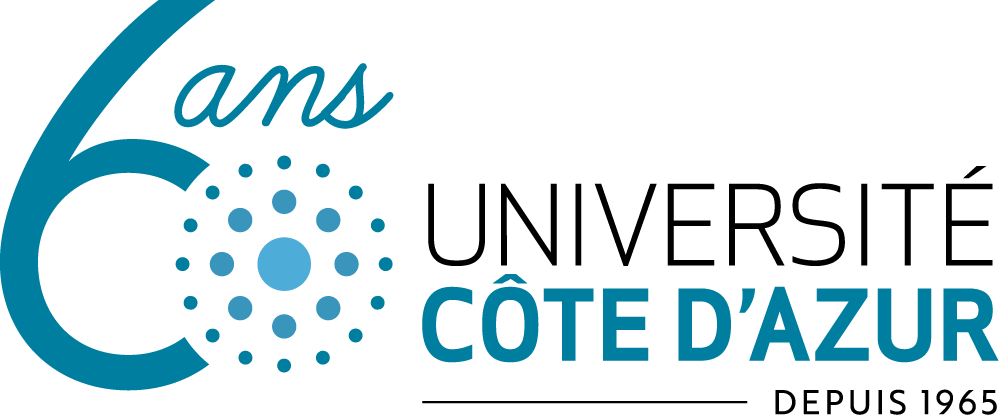Doctorant
Mimi Aimée Sossou

Coordonnées
Discipline(s)
Droit, économie et gestion > Sciences économiques
Thèmes de recherche
Mots-clés de la thèse : Métropolisation,Dynamiques économiques,Emploi,Territoire,
Metropolisation,Economic dynamics,Employment,Territory,
Metropolisation,Economic dynamics,Employment,Territory,
Informations complémentaires
Titre de la thèse : Dynamiques économiques sur le territoire de la métropole Nice Côte d’Azur : Hétérogénéité et tendances
Economic dynamics in the Nice Côte d'Azur metropolitan area: Heterogeneity and trends
Direction de thèse : Thomas JOBERT
Co-encadrant : Charlie JOYEZ
Summary of theisis project:
The metropolisation of the french economy, through the concentration of activities, employment and population around a metropolis, and the complexity and heterogeneity of territories calls for reflection on the economic dynamics of territories. For the case of this thesis, the interest is focused on the Nice Cote d'Azur metropolis, a particular case, being the first "metropolis" created at the end of 2011.
The objective of this thesis is firstly to better describe territorial inequalities, by studying the composition of employment, the evolution of its quantitative and qualitative distribution since the creation of the Nice Côte d'Azur metropolis. The second objective is to measure the potential economic dynamism of the metropolis as a whole and of its components. More precisely, this part is in line with the concepts of "smart specialization" and "knowledge complexity" which reflect the future development possibilities of the territory by playing on the complementarity, relatedness and expected growth of each of the activities present locally. Finally, a last part of the thesis will focus on the resilience of the regional labor market, allowing the identification of localities at risk of long-term unemployment in the future, as well as the type of employment to be developed in order to reduce this risk.
The thesis will thus contribute to calculating these different indicators at the metropolitan level from the employment data of the INSEE FLORES database and PATSTAT (European Patent Office) over the period 2010-2020 to have a precise vision of the local economic fabric. It will be a useful diagnostic tool for steering the city's economic decisions to encourage the development of such "intelligent specialization", to determine the complementary activities on the city's territory, to identify the sectors to be developed and the risky territories to better guide public action and also to enlighten the private actors in their choices.
Economic dynamics in the Nice Côte d'Azur metropolitan area: Heterogeneity and trends
Direction de thèse : Thomas JOBERT
Co-encadrant : Charlie JOYEZ
Summary of theisis project:
The metropolisation of the french economy, through the concentration of activities, employment and population around a metropolis, and the complexity and heterogeneity of territories calls for reflection on the economic dynamics of territories. For the case of this thesis, the interest is focused on the Nice Cote d'Azur metropolis, a particular case, being the first "metropolis" created at the end of 2011.
The objective of this thesis is firstly to better describe territorial inequalities, by studying the composition of employment, the evolution of its quantitative and qualitative distribution since the creation of the Nice Côte d'Azur metropolis. The second objective is to measure the potential economic dynamism of the metropolis as a whole and of its components. More precisely, this part is in line with the concepts of "smart specialization" and "knowledge complexity" which reflect the future development possibilities of the territory by playing on the complementarity, relatedness and expected growth of each of the activities present locally. Finally, a last part of the thesis will focus on the resilience of the regional labor market, allowing the identification of localities at risk of long-term unemployment in the future, as well as the type of employment to be developed in order to reduce this risk.
The thesis will thus contribute to calculating these different indicators at the metropolitan level from the employment data of the INSEE FLORES database and PATSTAT (European Patent Office) over the period 2010-2020 to have a precise vision of the local economic fabric. It will be a useful diagnostic tool for steering the city's economic decisions to encourage the development of such "intelligent specialization", to determine the complementary activities on the city's territory, to identify the sectors to be developed and the risky territories to better guide public action and also to enlighten the private actors in their choices.

















